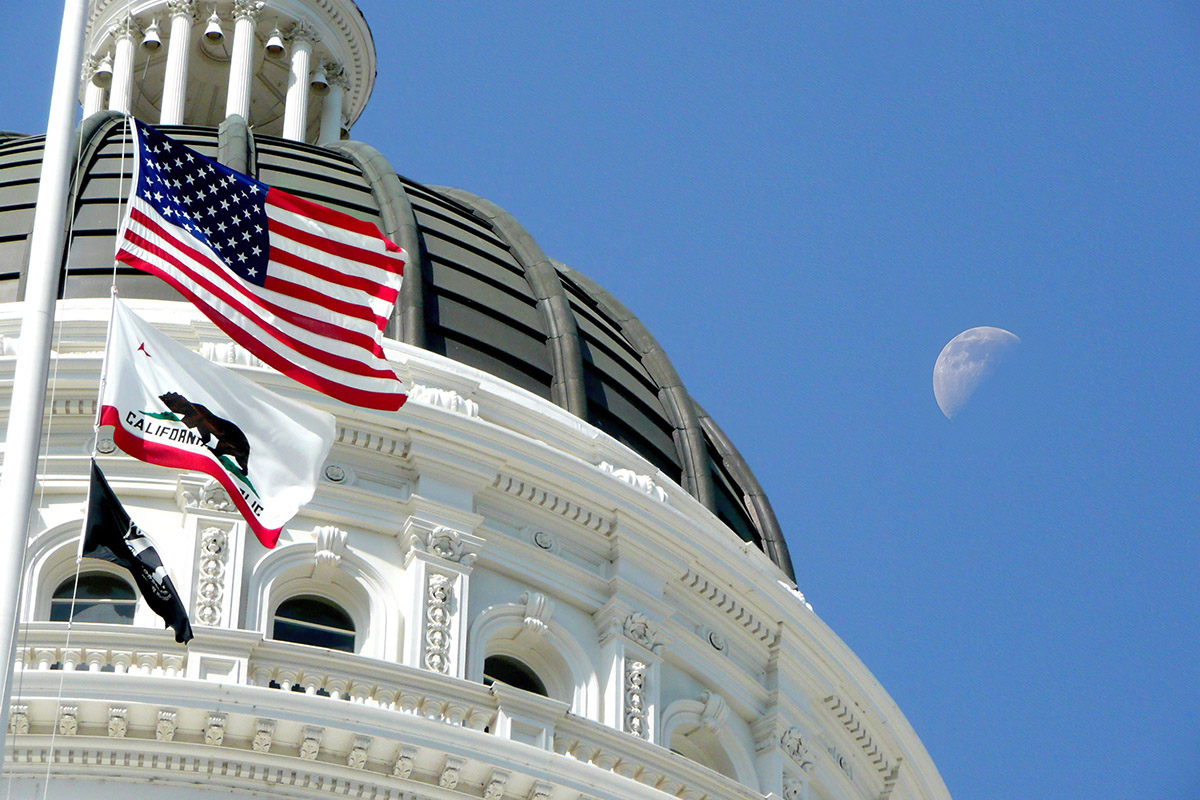This article was updated 7.1.25 to reflect a business name change.
AAPL’s Government Relations Committee will continue to monitor the situation and assist in developing a plan for future steps.
For more than 40 years, the law of usury in California has been a bit of a joke—that its exceptions are larger than the rule itself. Generally speaking, California caps the interest rate for all loans at 10%, though licensed lenders and licensed brokers enjoy complete immunity from this limitation, or at least we thought so.
During this time, a loan made by a CFL (California Finance Law) lender or one made or arranged through a DRE (Department of Real Estate) broker was exempt from the usury law, including loans that were subsequently modified or extended.
It is this last point regarding modification and extension, on a loan arranged by a DRE broker, that was the subject of the case known as In re Moon. This case, recently decided by the 9th Circuit Court of Appeals, has drastically changed the landscape of brokered loans in California.
Let’s take a deeper look into that case, what that means for the present, and what AAPL is doing for the future.
California Usury Law
California’s usury law is fairly unique in that it stems from the state constitution rather than a statute. Article XV provides for the limitation on interest, but then it goes on to say that certain classes of businesses typically engaged in lending are exempt, plus any further classes of persons or groups the legislature chooses to exempt. The legislature codified exemptions for licensed DRE brokers and licensed CFL lenders.
There are a few other exemptions as well, including loans made by a seller of property (known as the credit-sale or time-price doctrine), which under California law does not count as a loan, at least for usury purposes. There is also an exemption for default interest, which under California law, oddly does not count as interest, at least for usury purposes. Please note that before relying upon any usury exemption, you should consult with an attorney to discuss the specific scenario.
The Moon Case
In 1979, California voters passed Proposi-tion 2, which updated the interest limitation to 10% and added the exception for loans made or arranged by a licensed broker. In 1983, the legislature codified this provision and clarified what they meant by “made or arranged.” This is known as Civil Code Section 1916.1.
In a 1984 case that reached the 9th Circuit Court of Appeals (In re Lara), the 1916.1 statute was interpreted. The court said that when a loan is arranged by a broker, the broker must have been compensated or expected to be compensated for their work for the exception to be valid.
In response to the In re Lara case and to clarify what it means to be “compensated,” the legislature in 1985 adopted an update to 1916.1, which remains the same to this day.
For nearly 40 years, the understanding of 1916.1 has been that a loan, once made, continued to be exempt from the usury law, even if the loan was modified or extended. This understanding changed abruptly when lower-level bankruptcy courts and, ultimately, the 9th Circuit in the Moon case decided that any “forbearance” (meaning any extension of the loan term or period for a borrower to pay) will result in a “loss of the exception unless the broker who arranged the purchase transaction related to the original financing transaction also arranges the new forbearance.”
In the Moon case, the 9th Circuit Court made an interpretation we do not feel is in keeping with the spirit of the law and its interpretation during the prior 40-plus years. Namely, that the language of 1916.1 is not limiting at all, but merely explains the methods by which a broker may be compensated to perform certain tasks that qualify as “arranging” a loan or forbearance. Nevertheless, the Moon case is over, and we must deal with these consequences.
Operating in the Current Environment
Exceptions to the usury limit still exist. Loans made by a licensed DRE broker remain exempt, even when the loan is extended. Loans made by a licensed CFL lender remain exempt, even when the loan is extended. The major change is for loans arranged by a licensed DRE broker to a lender who is not otherwise licensed. These broker-arranged loans are still exempt from the usury law at the time they are made, but only for the original term of the loan. An extension of the time to pay, which includes formal modification agreements, forbearance agreements, or even less formal agreements to defer payment or to delay a foreclosure date, may all qualify as a “forbearance,” which will cause the loss of the exemption.
Although a sale of a usury-exempt loan will not in and of itself cause the loss of the exemption, if that loan is sold to an unlicensed investor, or the loan becomes modified at a later date, there could be issues. This is not to say that the Moon case applies to these situations, but given the broad nature of the exemption by the courts, a similar argument may arise in a future case limiting these transactions further.
As stated previously, it is strongly recommended that an attorney be consulted about any scenario dealing with usury in California. This article is not long enough to get into every detail or caveat—and there are several. There are potential workarounds to the result of the Moon case, but these should be discussed with an attorney who can apply these methods to the specific loan scenario.
Fight for the Future
Despite the end of the Moon case, the fight goes on. We have switched our focus to a legislative fix. We have already met with California legislators and their staff on a campaign to amend the statute to simplify the language of 1916.1 to clarify its original intent. In the coming weeks and months, we will be following up with them. To add weight to our effort, we’ll also be collaborating with colleagues in other trade associations affected by these court rulings. Fortra Law, as the general counsel for AAPL, has led the charge against the court’s interpretation of 1916.1 and will continue to provide the resources and expertise necessary to push an amendment through the legislature.
At some point, we may ask AAPL members to join us in a grassroots campaign (i.e., letters and phone calls) to support a future bill that would change the language of 1916.1 to clarify the extent of the exception.
In the meantime, please be mindful of the current state of the law when considering an extension of a loan arranged by a broker in California. Again, we recommend that you speak with an attorney before weighing your options.
AAPL will remain focused on this issue as it unfolds. Should you have any questions regarding the case or Fortra Law’s involvement on behalf of AAPL, please contact Melissa Martorella, Esq., a partner at Fortra Law at melissa.martorella@fortralaw.com. Note that Melissa also represents Fortra Law as the ex-officio member of our Government Relations Committee, which will continue to monitor the situation and assist in developing a plan for future steps.











Leave A Comment